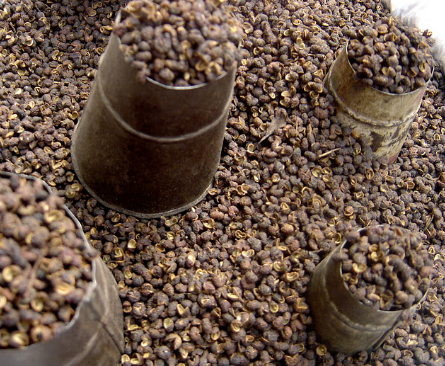 |
| Seeds |
Procedure of Seed Certification
- Certified Seed growers produces seed from breeder seed in small amount and multiply them in isolation to prevent the contamination from other varieties of crops and need to be harvested at the stage of maturity. Then, seeds need to be collected. The production and handling should follow the standard set up by certifying agency.
- After when seeds are collected, they are transferred to seed store or to nursery for sowing or storage, the seed lot should have a certificate indicating species, date of collection, locality factors like aspects, elevation, soil condition, climatic conditions, method of storage, name of collector, quantity of seeds, date of dispatch, condition of seed at the time of dispatch. It includes field inspection, seed quality tests and pre-& post quality check.
- A well-organized seed certification should be able to accomplish the following objectives of systematically increasing of superior varieties, identification of new varieties and their rapid increase, provision for continuous supply. Maintaining certain ‘Seed Multiplication Ratio (SMR)’based on its demand and requirement, the number of seeds produce from single seed is SMR.
Seed Certification in Nepal
In Nepal, general knowledge is growing related to seed business as well with development, different seed production initiatives are carried on seed certification has been defined by the respective institute. Even when seed is to be purchased from private or from other state departments such certificates are essential. With long term vision Nepal adopted a holistic vision for the development of Nepal’s seed sector included in “National Seed Vision 2013 – 2025”. The leading organization for seed certification in Nepal is "Seed Quality Control Center".This has been conducted obtaining accreditation from international community of seed certification. Establishment/functional organization which have duties and responsibilities of seed test and also have power to notify the kind and varieties. In Nepalese context, seeds are properly labeled and recorded in the register, following information should be included in the list like the species (Latin name and Nepali name), Date of collection, Place of collection, District, Zone.
Importance of seed certification
- To maintain availability of seeds of high quality of different kinds and varieties to the farmers through certification.
- To ensure the acceptable standards of seed viability, vigor and purity and germination percentage.
- Useful for the provenance test
- Help to achieve the objective of plantation
- Knowing the quality of mother tree
- Vigorous of the growth and the degree of suitability to the site of plantation.
- Better yield, drought tolerance, herbicide tolerance and pest tolerance with improved traits.
- Play important role as an important risk management tools.



0 Comments